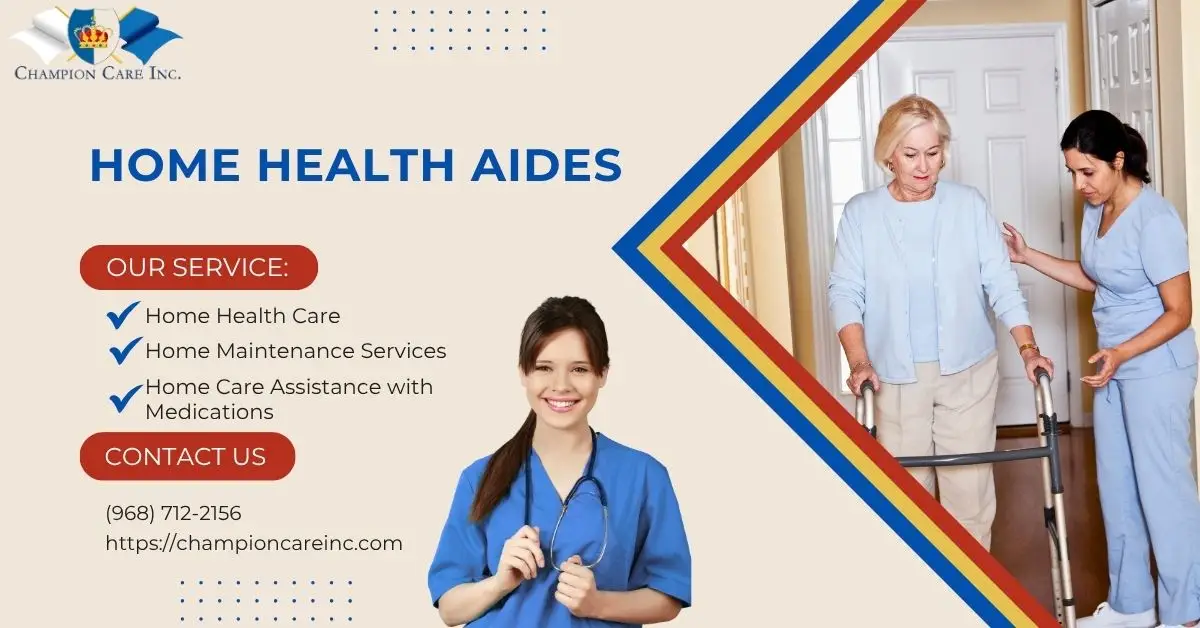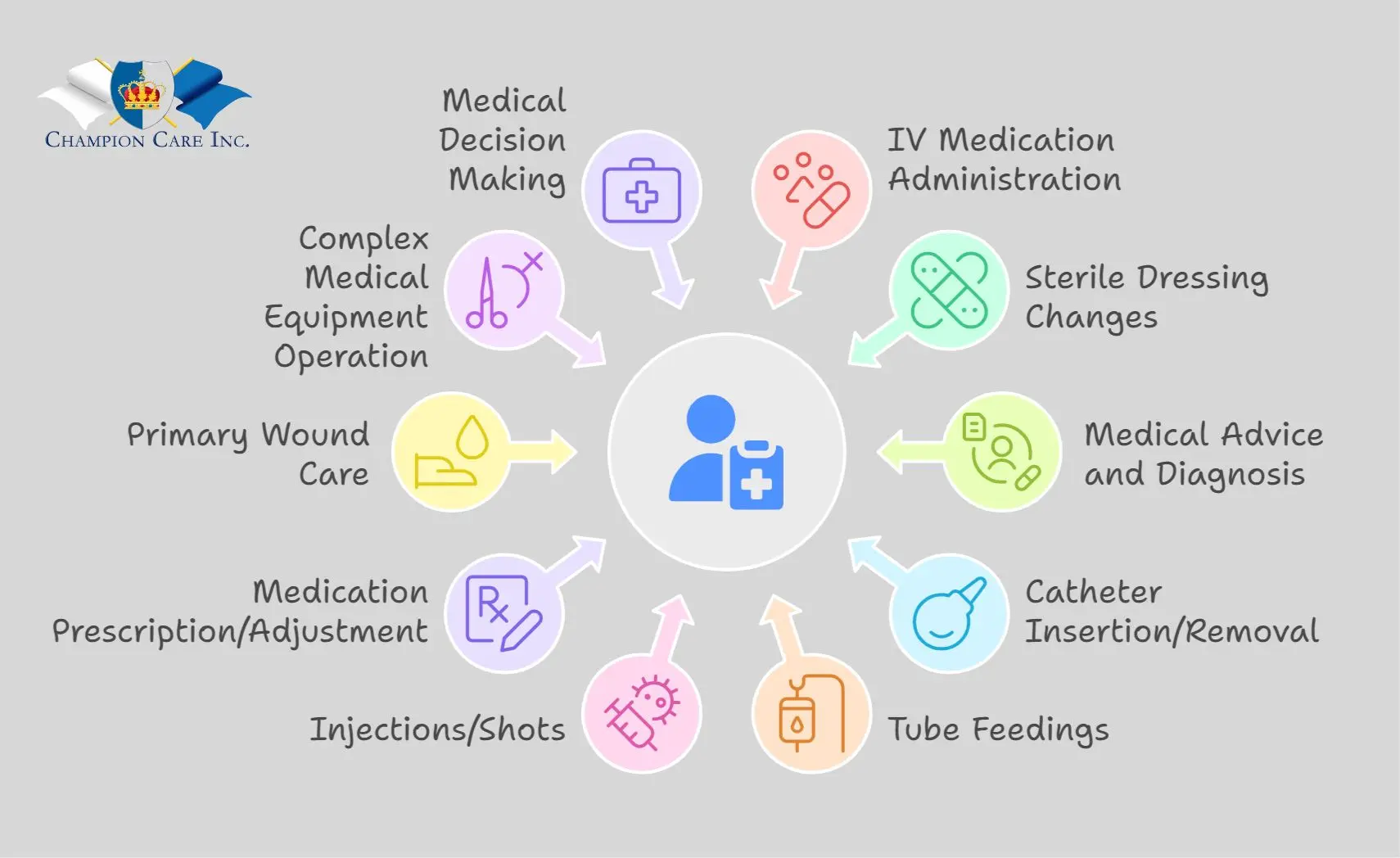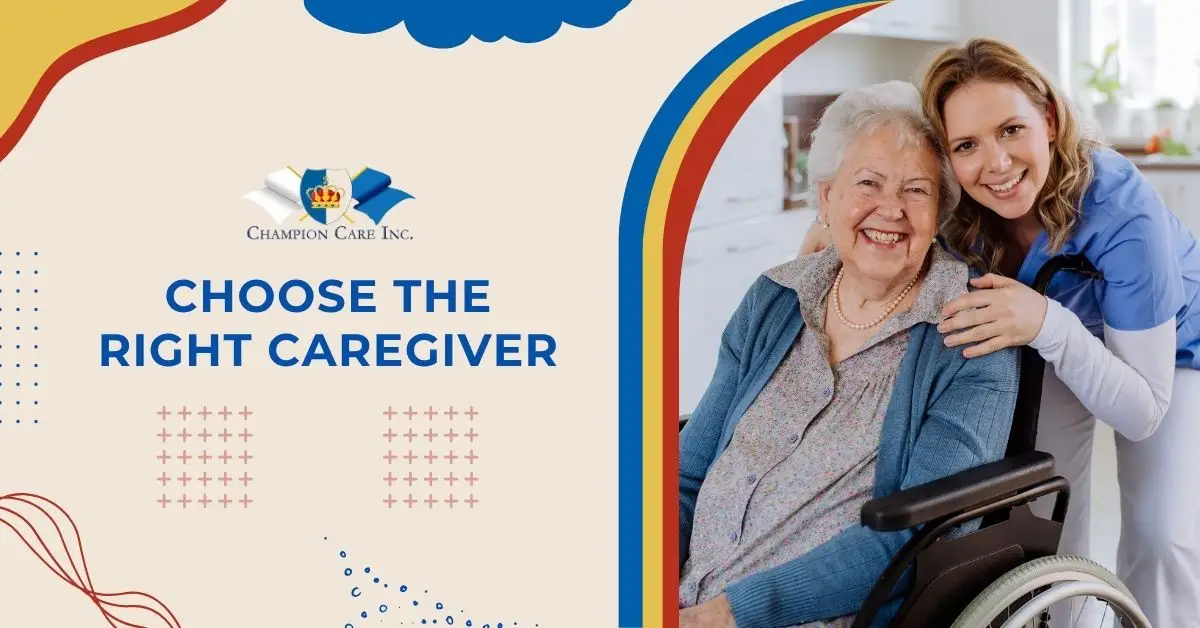What home health aides are not allowed to do is something every family must know. Home health aides assist with daily tasks such as bathing, dressing, and light cleaning. But they do not do medical work or skilled nursing. Knowing what they can’t do helps families avoid confusion and keeps loved ones safe. This guide will show the limits of home health aides. It will also explain why these rules are essential when selecting the proper care at home.

What Is a Home Health Aide?
A home health aide (HHA) is a trained caregiver who helps people with daily living tasks at home. They support seniors or others who need assistance with tasks such as bathing, dressing, and light housekeeping. HHAs provide personal care but do not perform medical or skilled nursing tasks.
The Role and Duties of Home Health Aides
Home health aides focus on non-medical home care tasks. Their job is to assist with Activities of Daily Living (ADLs), which include helping clients with activities such as bathing, dressing, eating, and moving safely. They may also prepare simple meals, do light housekeeping, and provide companionship. Many families rely on HHAs to keep their loved ones comfortable and safe in their homes.
Difference Between Home Health Aides
It’s essential to know the difference between home health aides, Certified Nursing Assistants (CNAs), and Registered Nurses (RNs). CNAs have more medical training than HHAs and can perform some skilled nursing tasks under the supervision of a licensed healthcare professional. RNs have undergone even more training and can provide advanced medical care, such as administering injections and managing treatments.
Unlike nurses, home health aides are not allowed to do skilled nursing tasks. For example, HHAs do not change wound dressings, give injections, or manage medications. These medical procedures require special training and licensure.
Knowing what home health aide do and don’t do helps families make informed choices. It ensures they get the right kind of help for their needs, whether that’s personal care or medical treatment. This understanding can significantly impact the quality and safety of care at home.
Legal & Professional Limits of Home Health Aides
Home health aides must follow explicit rules set by state and federal agencies. These rules explain what they are legally allowed to do. The limits keep patients safe and ensure aides work within their training. Let’s explore these critical boundaries.
How Legal Limits Protect Home Health Clients
Home health aides operate under state laws and federal guidelines that define their job responsibilities and limitations. These rules help protect the health and safety of people receiving care. They vary from state to state but generally restrict aides from performing medical procedures.
For example, aides are not authorized to administer injections, start IV lines, or change sterile wound dressings. These tasks require licensed nurses who have specific training. Home health aide focus on personal care and assistance with daily living, rather than medical care.
Choose a Licensed Agency That Follows the Rules
Agencies that employ home health aides must closely follow these laws. This protects both the patient and the aide from legal risks. It also helps families know what kind of care to expect and avoid confusion about the aide’s role.
Champion Care Inc. complies with all applicable state and federal regulations to provide safe, legal, and high-quality care. If you need reliable senior home care services, it is crucial to select a provider that complies with the relevant regulations.
Understanding these limits makes it easier to pick the proper care and keep your loved one safe. It also highlights why specific tasks should be left to nurses and medical professionals.
Home Health Aides Aren’t Allowed to Do
Home health aides play a significant role in helping seniors and others with their daily needs. But there are essential tasks they must not do. Knowing these keeps everyone safe and transparent about their role. Here are ten everyday functions they can’t perform.

What Tasks Are Off Limits for Home Health Aides?
Home health aides are not authorized to perform medical tasks that require specialized training and licensure. Here are 10 things they are usually not allowed to do:
- Administer intravenous (IV) medications: Only licensed nurses are authorized to handle IVs.
- Changing sterile dressings requires medical training to prevent infection.
- Provide medical advice or diagnose conditions: Only licensed healthcare professionals, such as doctors and nurses, are authorized to do this.
- Inserting or removing catheters: Requires skilled nursing expertise.
- Perform tube feedings: Must be done by licensed medical staff.
- Administer injections or shots: This task should only be performed by trained healthcare professionals, such as nurses or doctors.
- Prescribe or adjust medication: Medical authority is required in this instance.
- Handle primary wound care: This involves special medical knowledge.
- Operate complex medical equipment: Requires specific training beyond aide duties.
- Make medical decisions for the patient: Typically, families and licensed professionals make these decisions.
If your loved one requires assistance with any of these tasks, a nurse or other medical professional should be involved. Home health aides focus on personal care and help with daily living, but they don’t provide medical treatment.
Why These Boundaries Matter
Knowing what a home health aide can and cannot do is very important. These limits protect your loved one and make sure care is safe and legal. They also help families understand what to expect from aides, so there are no surprises.
Why Setting Limits Is Important for Home Health Aides
First, boundaries keep the person getting care safe. Some medical tasks require training to avoid harm or infection. If a home health aide tries to do those tasks without proper skills, it could cause serious problems.
Second, following these rules helps avoid legal issues. Caregivers and families must work within the law. This protects both the aide and the family from trouble.
Third, understanding these limits helps families set realistic expectations. Knowing what aides can do means choosing the right kind of care. It prevents frustration and confusion about services.
Finally, it protects home health aides. Their training is for personal care, not medical treatment. Sticking to their role helps them avoid stress and burnout.
By respecting these boundaries, families get safe and proper care. It also shows when it is time to bring in skilled nursing or other medical professionals. Read this to learn how to increase home health aide hours.
What Home Health Aides Can Do
Home health aide play a crucial role in helping individuals remain comfortable and safe in their own homes. They provide support with daily tasks and offer companionship. Knowing what they can do helps families choose the proper care and understand what to expect.
Tasks That Home Health Aides Commonly Perform
Home health aides assist with daily tasks such as bathing, dressing, and grooming. They also support light chores and offer reminders, making home life easier and safer.
- Assist with bathing, dressing, grooming, and toileting as needed.
- Help clients move around safely in the home.
- Do light housekeeping (laundry, cleaning, etc.)
- Prepare simple meals
- Remind clients to take medication
- Provide companionship to ease loneliness.
- Help with getting in and out of bed or chairs.
- Focus on non-medical care only.
Trained professionals, such as nurses and doctors, should always provide medical care. Home health aides offer daily support, rather than medical procedures or clinical tasks. Please read our article to learn more about the responsibilities and duties of a home care assistant.
Choosing the right home health aide means understanding these services and matching them to your loved one’s needs. For trusted and trained aides who follow all rules, consider providers like Champion Care Inc.
When You Might Need Skilled Nursing Instead
Sometimes, home health aide are not enough to meet a person’s medical needs. Skilled nursing provides a higher level of care for individuals who require specialized medical treatments and close monitoring. Knowing when to choose skilled nursing is key to proper care.
Difference Between Skilled Nursing and Home Health Aides
Skilled nursing involves care provided by licensed nurses, such as Registered Nurses (RNs) or Licensed Practical Nurses (LPNs). These nurses can perform medical procedures, such as administering injections, managing wounds, and monitoring vital signs. They also adjust treatments based on a patient’s condition.
If your loved one needs medical tasks that a home health aide cannot perform, like IV therapy, catheter care, or complex medication management, it’s time to seek skilled nursing. Sometimes, families choose to combine skilled nursing with home health aide services. This way, medical needs are met while personal care and companionship continue.
Champion Care Inc. offers assessments to help families determine the level of care they need. Their team can recommend the best mix of services to keep your loved one safe and comfortable at home.
Knowing when skilled nursing is necessary helps prevent health complications and ensures that care matches your loved one’s needs.
How to Choose the Right Caregiver for Your Needs
Selecting the right caregiver is crucial to obtaining the best support for your loved one. There are essential factors to consider to ensure the caregiver is trustworthy, skilled, and a good fit for your family’s needs.

What to Look for When Hiring a Home Health Aide
Start by checking the caregiver’s licensing and certifications. A valid license indicates that the individual has received the necessary training and meets state standards. Background checks are also essential to ensure safety and reliability.
Training matters a lot. The best aides have completed thorough programs and have experience in personal care. Ask about their skills and the type of care they have provided in the past.
It’s also important to consider personality and communication. The caregiver should be patient, kind, and respectful. Good communication helps build trust and makes daily care easier. Read this to know about the duties and responsibilities of caregivers towards the elderly.
Champion Care Inc. carefully vets each caregiver. Their process includes licensing verification, background checks, and skill assessments. They also match caregivers to clients based on needs and preferences.
Choosing the right caregiver brings peace of mind and ensures your loved one feels comfortable and cared for. Don’t hesitate to ask questions; contact us today to make an informed decision.
Final Thoughts
Choosing the proper care for your loved one is a crucial decision. Understanding what home health aides can and cannot do helps you make wise choices. Asking questions and knowing the limits of care is okay; it keeps everyone safe and comfortable.
A Quick Recap and How We Can Help
Home health aides offer valuable support with daily tasks but don’t perform medical duties. When medical care is needed, skilled nurses step in to provide care. Knowing these boundaries helps families set clear expectations.
If you feel unsure or need help finding the proper care, reach out. Champion Care Inc. is here to guide you with trusted advice and quality services. Getting the right help can make a big difference in your loved one’s life.
Frequently Asked Questions (FAQs)
Can home health aides give medication?
No, home health aides can remind clients to take their medication, but they are not allowed to administer or adjust it. Licensed nurses handle those tasks.
Are home health aides allowed to do wound care?
Home health aides can assist with basic hygiene but are not authorized to perform primary wound care or change sterile dressings. These require medical training.
What is the difference between a home health aide and a CNA?
Home health aides provide personal and non-medical care to individuals in their homes. Certified Nursing Assistants (CNAs) receive more comprehensive medical training and are authorized to perform specific skilled nursing tasks.
Can a home health aide insert or remove catheters?
No, catheter care is a medical procedure done by licensed nurses.
How do I know if my loved one needs skilled nursing instead of home health aide care?
If medical treatments like injections, IV therapy, or complex wound care are needed, skilled nursing care is required. A professional assessment can help decide.

